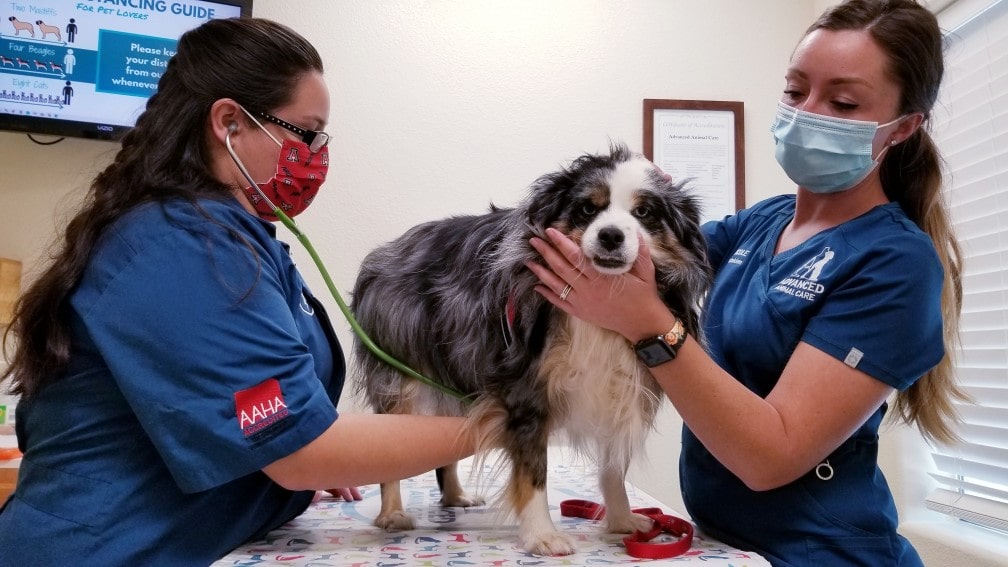If you are one of the dog lovers whose priority is to keep your dog healthy and happy, this article is apt for you. It has been observed that when dogs suffer from chronic digestive issues, veterinarians recommend Probiotics to alleviate any digestive problems and discomfort.
Have you ever thought of introducing Probiotics to your dog’s meal? Well! If you have not till now, here is the right time.
Let us delve deeper into the primary benefits of introducing Probiotics to your dog.
What are Probiotics in Dogs?
These are good bacteria found in the dog’s gut. Gut bacteria play a significant role in health and disease. Towards the intestine, the number of bacteria increases, and most bacteria live in a dog’s colon. It is significant to support these bacteria (microbiome) using the right Probiotics at the right time.
Probiotics boost gut bacteria and help digest food. Dog’s gastrointestinal tract and brain are strongly co-related. Maintaining microorganisms in the intestines can help with mental and emotional regulation.
Some dogs have a well-balanced and strong microbiome that does not need much support to stay healthy, while a few dogs struggle to maintain balanced and healthy gut bacteria. These dogs need a little extra assistance with Probiotics.
What Are the Conditions That Benefit from Probiotics?
If your dog shows any of the following symptoms, Probiotics are the right solution to overcome these health problems-
- Immune disorders
- Intestinal inflammation
- Liver disease
- Obesity
- Diarrhea
- Stomach upset
- Bloating
- Pancreatitis
- Yeast overgrowth
- Skin disorders
- Urinary tract infection
- Irregular bowel syndrome
- Allergies
- Anxiety
What Upsets the Microbiome in Dogs?
- Antibiotics
- Eating spoiled food
- Excessive licking of surfaces
- Diet rich in high carbohydrate
- Diet change
- stress
What Are the Different Kinds of Probiotics That Are Best for Your Dogs?
Although your vet is the right person to suggest the best Probiotics for your dogs, however, the most common Probiotics found in dog’s digestive systems and products include
- Lactobacillus casei
- Bifidobacterium lactis
- Lactobacillus acidophilus
- Bifidobacterium breve
- Enterococcus faecium
Probiotics are made in different forms. These may include yogurt with live cultures, powders, capsules, and chewable products specially made for dogs. Your dog may prefer probiotics as a powder sprinkled over its food instead of swallowing tablets or capsules.
Most importantly, as bacteria are sensitive to moisture, air, and temperature, the way the dog’s food is made and the type of food to which Probiotics are added can change the quality of the food and the Probiotics.
While soft treats Probiotics are the easiest form to give to your dog, soft treats don’t contain live Probiotics, and some of them might also have added preservatives and additives.
A healthy Probiotics yeast known as Saccharomyces Boulardiiis is used to treat chronic diarrhea in humans. However, recent trials have shown the same benefits in dogs as well. This Probiotic helps with digestive problems caused by inflammation.
The best part about Sacchharomyces Boulardiiis is that antibiotics cannot destroy it. You can use this along with antibiotics to help protect the gut bacteria and prevent antibiotic-related diarrhea.
Natural Probiotics:
Fermented foods like Chaga, Kefir, and Kimchi can be included in your dog’s diet. The fermented foods contain high content of Probiotics and should be used in moderation and with caution, especially for dogs with SIBO (small intestinal bacterial overgrowth) and yeast infections.
A good source of natural Probiotics is yogurt. However, there are a few problems with using yogurt as a Probiotics. Firstly, dairy products can cause inflammation and immune issues in dogs. Also, dogs should only eat plain yogurt with no added artificial sweeteners.
Sweet yogurt could be dangerous for dogs’ health. It can cause unwanted changes to the gut flora. Secondly, dairy products can cause inflammation and immune issues in dogs.
It has been found that soil-based Probiotics are an excellent choice for dogs. These bacteria strains are strong and more likely to survive in the dog’s harsh gut locations.
Probiotics Supplements
Look for a Probiotics supplement with several strains. Probiotics usually use a mix of strains to get a better result. Choose a product that contains a large number of colony-forming units (CFU).
There should be at least 10 billion CFU for any live Probiotics to survive in a dog’s gut. This amount is good for healthy dogs. However, those who suffer from digestive or immune problems should opt for about 25-50 billion CFU for dogs.
You may use a smaller amount of CFU if you consider using spore-forming dog Probiotics. This is because this type of Probiotics can survive gut acidity.
Read Also: Natural Probiotics VS Probiotic Supplements For Dogs
What Are the Factors to Consider Before Giving Probiotics to Dogs?
Dogs who eat Kibble or a high-starch diet can be given Probiotics daily. However, dogs with excessive gas issues or small intestinal bacterial overgrowth should not take Probiotics daily.
Be extra cautious about how Probiotics are made and packaged or how they are added to the food. Any unusual changes can alter the way Probiotics work.
Probiotics should be stored in refrigerators because they are sensitive to environmental factors. Make sure to read the label to know what type of Probiotics you give to your dogs.
Some of The Best Probiotics for Dogs:
- Zesty Paws
- VetriScience Probiotic capsules
- Purino Pro Plan FortiFlora Probiotic Sachet
- Pupper Digest
- Penguin CBD Dog Treat
- Pet Honesty Digestive Probiotics
- Ultimate Pet Nutrition Nutra Thrive
- Four-leaf Rover Gut Guard
- Nutri-Vet Pre-& Probiotic
- Plano Paws Tummy Treat
- Native Pet Probiotics
- Profivex Probiotics
- Nom Probiotic Support
- Nulo Functional probiotic Soft Chews
- Wholistic Pet Organic Digest-All Plus

 DogExpress
DogExpress





















 in Chandigarh, India.
in Chandigarh, India. 
